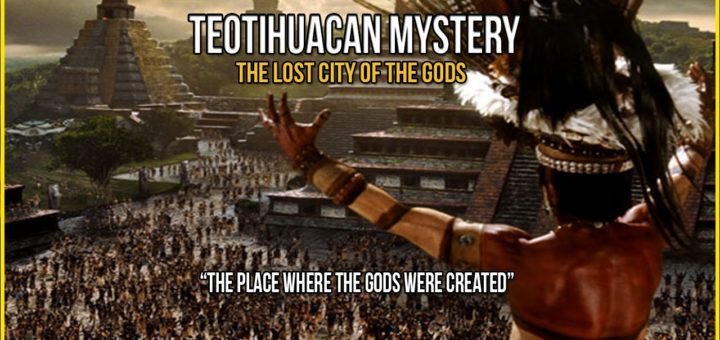
Teotihuacan was a pre-Colombian Mesoamerican city in the State of Mexico in central Mexico, 35 miles northeast of Mexico City. The site is considered one of the most archaeologically important examples of Mesoamerican architecture and culture.
Despite the towering reputation of Egypt’s Great Pyramids at Giza, the Americas actually contain more pyramid structures than the rest of the planet combined. Civilizations like the Olmec, Maya, Aztec and Inca all built pyramids to house their deities, as well as to bury their kings.
Ancient alien theorists have pointed out that some ancient monuments demonstrate a thorough knowledge of astronomy surpassing knowledge of later cultures. The Pyramid of the Sun at Mexico’s Teotihuacan lies at the center of a complex of pyramids, each aligned with a planet in the solar system.
Historians are unable to explain the origin of the Teotihuacan culture. Even the exact dates of origin are uncertain. However, most agree that construction began sometime around 600 BC. Originally, it was believed that the city was constructed by the Toltecs. Eventually, this was disproved when it was determined that Teotihuacan was older than the Toltec capital of Tula.
For a long time, it was thought that Teotihuacan was a “pyramid field,” in von Daniken’s words because the houses were buried and invisible. But we know they are there now. The houses, elite and common, which make up Teotihuacan are less well-known than the pyramids, but they are built of the same materials in the same architectural styles.
Teotihuacan was one of the largest cities in the ancient world, with over 150,000 inhabitants at its peak. As you walk through the city you notice immediately the difference compared to other ancient cities.
Teotihuacan is amazing, it has this advanced but ancient feeling in it. Teotihuacan has a modern city layout, you have a Street of the Dead that goes for miles, along which you have all of the major ceremonial architecture, including some of the largest buildings ever erected in the New World.
It is one of the most incredible constructions in America, at Teotihuacan we find evidence that the builders had incredible knowledge in Mathematics, Geology, Astronomy and Engineering.
The Great Pyramid of Khufu at Giza and the Sun Pyramid at Teotihuacan apparently have the same base almost 750 feet square.
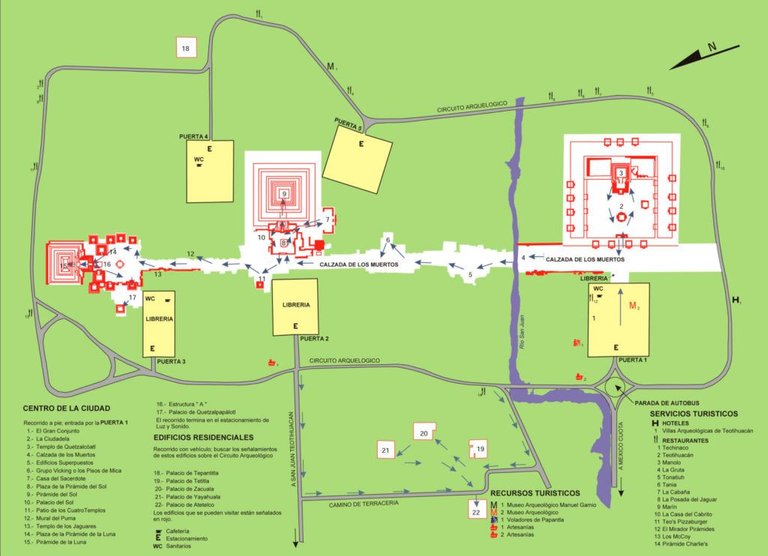
The Pyramid of the Sun is exactly half as tall as the Pyramid of Giza and the Temple of the Sun, the Temple of the Moon, and the Temple of Quetzalcoatl are in the same layout as Orion’s Belt, which is basically the formation in which the three pyramids of the Giza Plateau have been laid out into as well so this is just too complex to be just a coincidence as some researchers refer to.
You have an ancient civilization in Egypt and you have another in Central Mexico, separated by over seven thousand miles, yet they have constructed their monuments in such alignment to Orion’s constellation that it leaves researchers, archaeologists and scientists baffled.
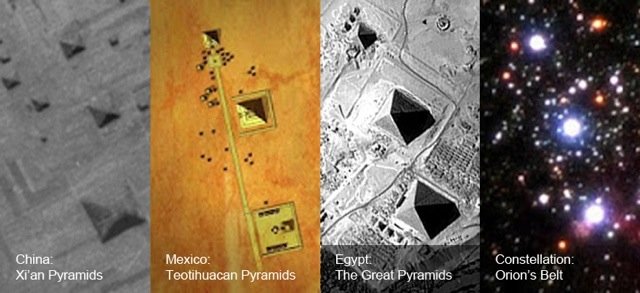
The people of Teotihuacan were very religious, and their great ceremonial center was believed to be sacred ground where only high priests could go. Murals throughout the city depict priests in various poses. They also have symbols of their various gods.
Their supreme god was called Tloquenahuaque. Possibly, of equal importance was Tlaloc, the god of rain. In addition, they worshiped Chalchitlicue, the goddess of water. Tlaloc and Chalchitlicue would eventually find their way into Aztec religion.
But here is the really interesting thing. Ancient astronaut theorists and alternative historians have made much hay out of the “mystery” of who built Teotihuacan, attributing the city to aliens, Atlanteans, a lost civilization, Phoenicians, and anyone other than native peoples.
But as far back as the early nineteenth century, the native character of the place was well-known. Here is William H. Prescott in his monumental History of the Conquest of Mexico (1843):
"But who were their builders? Was it the shadowy Olmecs, whose history, like that of the ancient Titans, is lost in the mists of fable? or, as commonly reported, the peaceful and industrious Toltecs, of whom all that we can glean rests on traditions hardly more secure? What has become of the races who built them? Did they remain on the soil, and mingle and become incorporated with the fierce Aztecs who succeeded them? Or did they pass on to the south, and find a wider field for the expansion of their civilization, as shown by the higher character of the architectural remains in the distant regions of Central America and Yucatan? It is all a mystery,—over which Time has thrown an impenetrable veil, that no mortal hand may raise. (vol. 2, p. 358)"
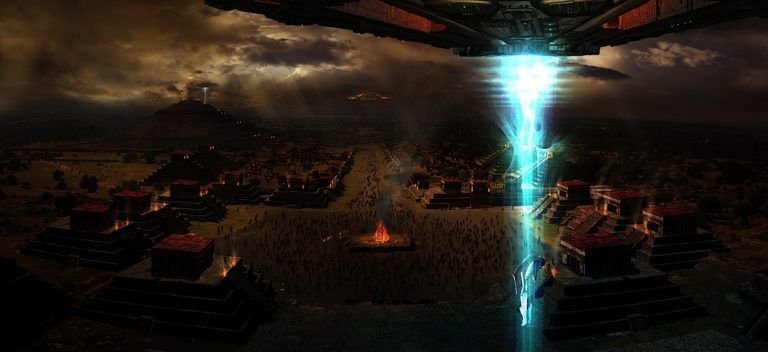
Teotihuacan used to be a thriving city and ceremonial center that predated the Aztecs by several centuries. Most likely it was Mexico’s biggest ancient city at its peak and the sixth largest city in the world in AD 600.
Teotihuacan began declining sharply around 650 AD and was almost completely abandoned around 750 AD. No one knows why.
This ancient city has traces of Mica embedded into the buildings is perhaps even more fascinating. Archaeologists have found large quantities of Mica at Teotihuacan, yet this mineral is found 3,000 miles away in Brazil, Mica is present almost in every single building at Teotihuacan.
Perhaps the most interesting thing is that Mica was known to several ancient civilizations among them the Indian, Egyptian, Greek, and Roman, Chinese civilizations, as well as the Aztec civilization of the New World. Interestingly, Mica is stable when exposed to electricity, light, moisture, and extreme temperatures.
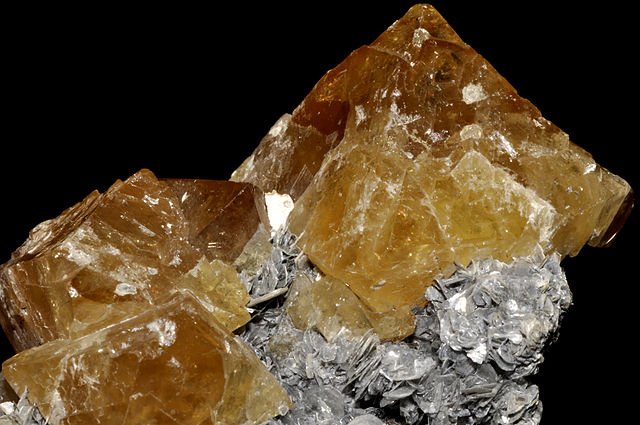
So why use mica?
Sheet Mica is used in electrical components today.
Its usefulness in these applications is derived from its unique electrical and thermal insulating properties and its mechanical properties, which allow it to be cut, punched, stamped, and machined to close tolerances.
Specifically, mica is unusual in that it is a good electrical insulator at the same time as being a good thermal conductor. The leading use of block mica is an electrical insulator in electronic equipment.
Most importantly, researchers have not found Mica in any other archaeological site in the vicinity, or in the Americas.
Why there are traces of Mica at the Pyramid of the Sun and other constructions in Teotihuacan is a mystery that archaeology has yet to explain properly. Mysteriously, the type of Mica used in Teotihuacan is believed to have originated in Brazil.
“Mica has many uses in our world as we know it today. It can be found in the making of lamp shades to insulator wrapping for wires. Here are few more uses of mica in our society today. It is used to make speaker diaphragms, snow flakes, heat shields, paper, and wave plates. Most paint today can be contributed to mica. Mica is now even being studied for its uses with nuclear activities. Mica is found in rubber products, oil well drilling additives, and in roofing products. When nuclear reactors leak they release radioactive isotopes cesium-137 into the air. “Two researchers have now discovered a form of mineral mica that acts as a highly selective sieve for capturing cesium ions.” (Science News, 2003) Furthermore, mica might help us to be able to safely clean up radioactive spills with out doing any harm to us.”
Yet despite its splendor, Teotihuacan has remained a mute, baffling mystery. The ancient Teotihuacanos did not leave behind any written records. Aside from painstaking forensic and archaeological analysis, we have no way of knowing who founded the city, what caused its decline and eventual demise around 450 AD, or even what the real name of the place was. (The name came from the Aztecs 700 years after it was abandoned: Teotihuacan, “the place where the gods were created.”)
References:
Hi! I am a robot. I just upvoted you! Readers might be interested in similar content by the same author:
https://steemit.com/history/@matrixdisclosure/teotihuacan-mystery-the-place-where-the-gods-were-created